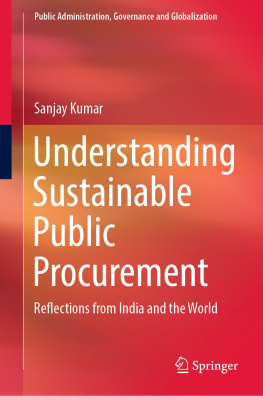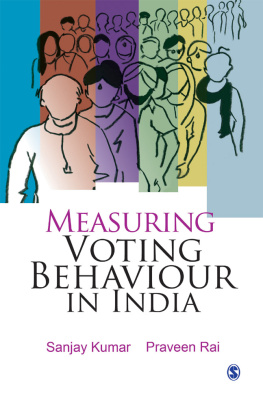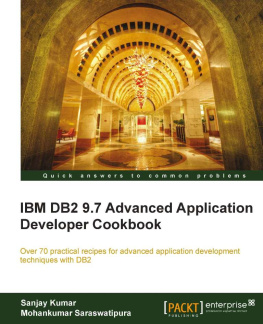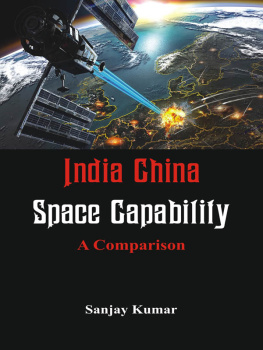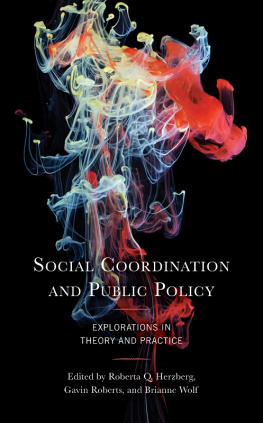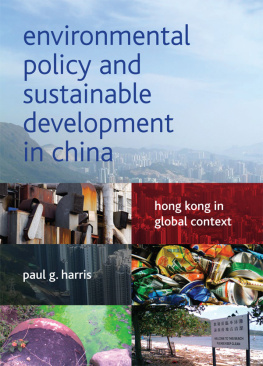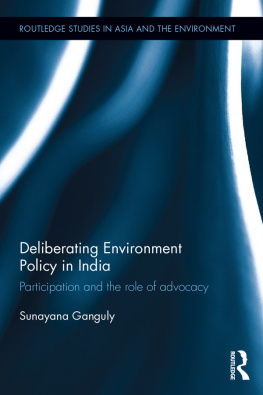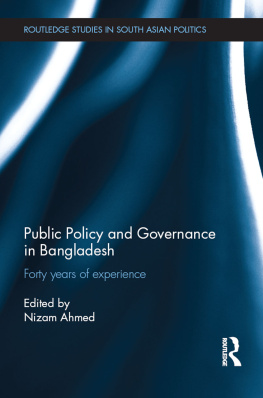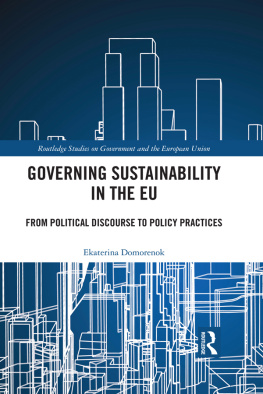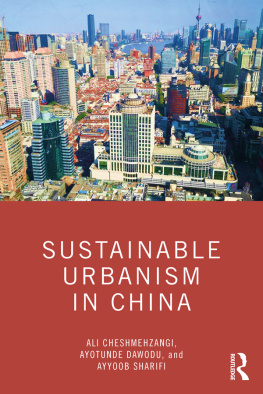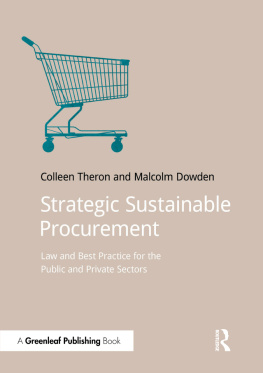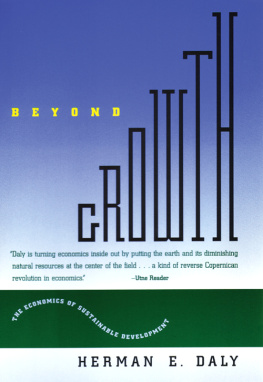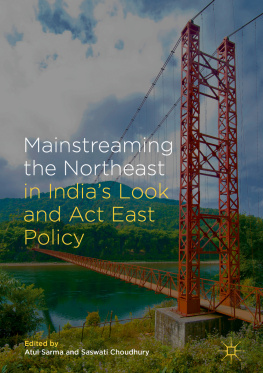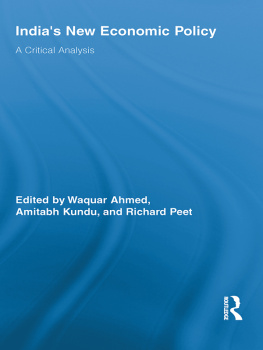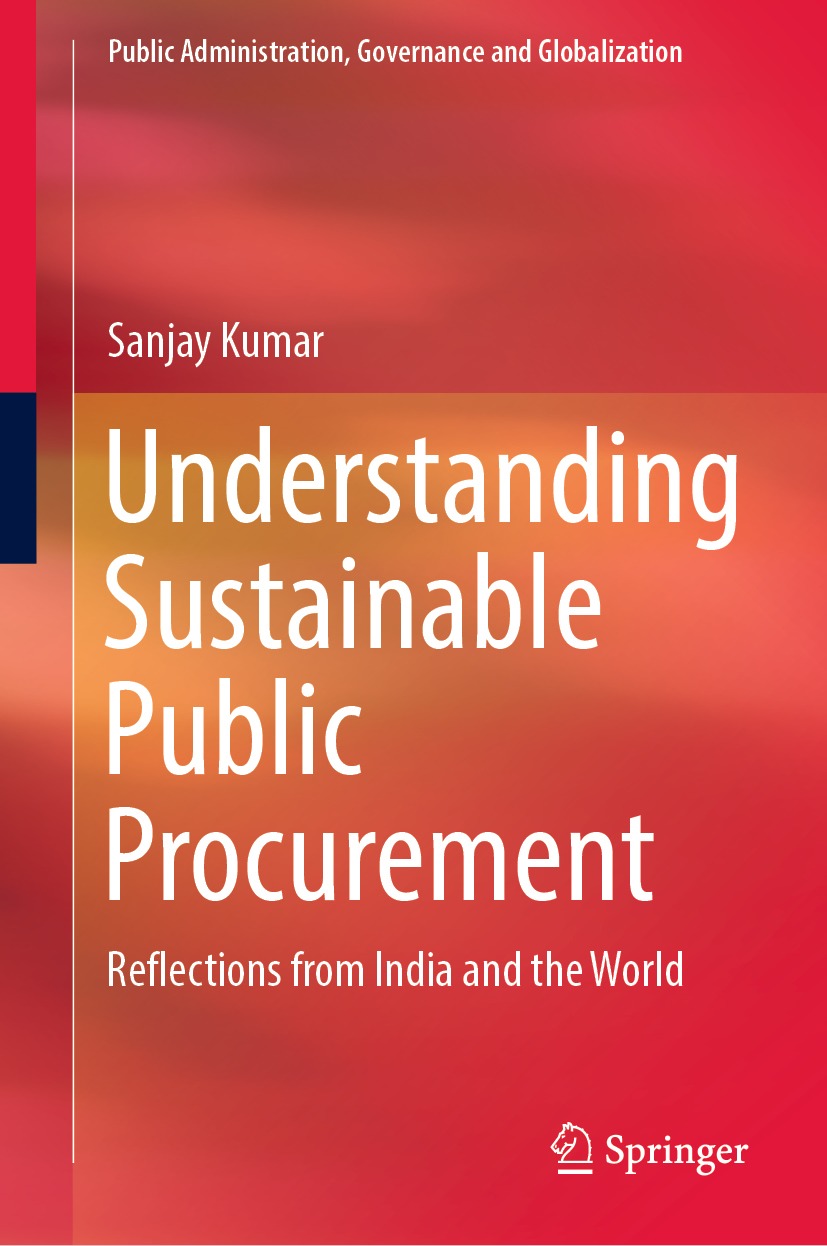Volume 21
Public Administration, Governance and Globalization
Series Editor
Ali Farazmand
School of Public Administration, Florida Atlantic University, Fort Lauderdale, FL, USA
The aim of Public Administration, Governance and Globalization (PAGG) is to publish primary research and theoretical contributions as well as practical reports on fieldwork to help advance the knowledge and understanding about public, nonprofit, private, and nongovernmental organizations and institutions. The governance, administration, and management of these organizations at local, national, regional, and international levels will be discussed in the context of this age of rapid change and globalization. This series on public management offers original materials that contribute to our better understanding of the critical issues as well as routine processes of governance and public administration, now more than ever because of the intricate forces of globalization that affect almost every nation-states and their policy choices at all jurisdictions across the world.
The series covers a wide range of topics that address the key issues of interest to scholars, educators, practitioners, and policymakers in public administration capacities around the globe. Books in the series can be research monographs, edited volumes, textbooks, reference volumes or handbooks. All book projects submitted to the series undergo evaluation by the series editor at proposal and manuscript submission stages. Additional rounds of double or single-blind peer review of volumes or chapters may be required at the series editors discretion.
Sanjay Kumar
Understanding Sustainable Public Procurement
Reflections from India and the World

Logo of the publisher
Sanjay Kumar
Indian Railways, Mumbai, India
ISSN 2512-2347 e-ISSN 2512-2363
Public Administration, Governance and Globalization
ISBN 978-3-031-08257-3 e-ISBN 978-3-031-08258-0
https://doi.org/10.1007/978-3-031-08258-0
The Editor(s) (if applicable) and The Author(s), under exclusive license to Springer Nature Switzerland AG 2022
This work is subject to copyright. All rights are solely and exclusively licensed by the Publisher, whether the whole or part of the material is concerned, specifically the rights of translation, reprinting, reuse of illustrations, recitation, broadcasting, reproduction on microfilms or in any other physical way, and transmission or information storage and retrieval, electronic adaptation, computer software, or by similar or dissimilar methodology now known or hereafter developed.
The use of general descriptive names, registered names, trademarks, service marks, etc. in this publication does not imply, even in the absence of a specific statement, that such names are exempt from the relevant protective laws and regulations and therefore free for general use.
The publisher, the authors, and the editors are safe to assume that the advice and information in this book are believed to be true and accurate at the date of publication. Neither the publisher nor the authors or the editors give a warranty, expressed or implied, with respect to the material contained herein or for any errors or omissions that may have been made. The publisher remains neutral with regard to jurisdictional claims in published maps and institutional affiliations.
This Springer imprint is published by the registered company Springer Nature Switzerland AG
The registered company address is: Gewerbestrasse 11, 6330 Cham, Switzerland
To my parents Late Smt. Puneshwari Devi and Sh. Moti Prasad, who taught me to stand on my feet
Foreword
Public procurement represents a substantial share of government spending and can play a key role in helping countries pursue the agenda for sustainable development. Hitherto, the objectives driving public procurement focused traditionally on so-called primary transactional dimensions of economy and efficiency. Over time, other strategic policy aimscommonly termed collateral objectiveshave taken on increasing centrality in the calibration of Value for Money (VfM) in public purchasing, depending on country context. Such broader socio-economic policy imperatives may include the development of local industries, facilitation of trade, promotion of environmental sustainability, and inclusion of disadvantaged groups, among others. Public procurement frameworks, to be successful, must, therefore, translate these varying policy imperatives into relevant regulations and practices within the confines of internationally accepted procurement principles.
Social valuewithin a VfM contextis a function of economic, social, and environmental outcomes that tangibly contribute to the well-being, resilience, and sustainability of society and the wider environment. By focusing on what gives social value in public procurement, governments can more readily capture positive externalitiesoutcomes and impactsthat widen transactional benefits and more effectively address broader pressing economic, social, and environmental challenges. Moreover, citizen preferences increasingly demonstrate demand for public procurement authorities to choose quality over price and to reflect wider societal value in making purchasing decisions and expenditures from public monies.
It is in this context that this treatise on sustainable procurement by Sanjay Kumar is very timely. While Sanjay, an acknowledged global thought leader on sustainable procurement, has made a mammoth effort in researching and collating the existing literature, he has critically examined the practices in various countries and adapted them to the Indian context. Much of the advances in this field have been made in developed countries, and their direct transposition in the developing country context has not always proven to be satisfactory. Sanjay has examined various policies and practices in different countries and made a critical assessment of their applicability in India.
What sets this book apart from the rest is a coherent narrative to view public procurement through a dual lens. From a macro-economic perspective, the book examines the power of government contracting as a policy tool to increase participation of micro and small and medium businesses, of disadvantaged groups, as well as for increasing innovation and environmental sustainability through use of green goods and services. At a micro-economic level, on the other hand, the book also looks at public purchasing at a discrete transactional and identifies ongoing challenges in deriving greater VfM from ground-level procedures and processes.
Procurement is, indisputably, where the rubber hits the road. Varied and variable procurement approaches at national and regional levels underscore the importance of sustainable global efforts to explore, innovate, and collaborate on critical dimensions of the public procurement space promoting more meaningful knowledge, research, and best practices across countries and regions. This book will be an important part of this agenda.
Sanjay Kumar needs to be congratulated for bringing out this comprehensive, yet eminently readable book on such an important subject. I am sure this will pave the way for meaningful reforms in India as well as other parts of the world.

